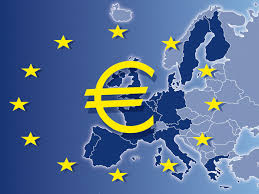The Euro zone is an economic and monetary union, which consists of 19 countries within the European Union, which in itself is a confederation of 28 nations primarily from Europe, forming an economic union.
The Euro zone has succeeded in maintaining a low and stable inflation rate, which has been its primary goal since the Euro’s introduction. The creation of the monetary union and the successful monetary policy of the ECB have also permitted a decade of low and stable interest rates and achieved a good degree of convergence in the Euro zone economies. The other successes of the zone in the past decade can be attributed to the relatively favourable conditions in the world economy before the international financial crisis and the euro zone debt crisis. Both the crises have affected the major economic indicators negatively and have exposed the internal imbalances of the Euro zone, the debt crisis posing the most serious challenge to the future of the Eurozone. However the very format of the Euro zone as an EMU prevents it from practicing a possible solution to the debt crisis. Every euro member nation has lost independent control over its monetary policy thus barring its central bank from buying their debt and printing money.
However the German success story cannot be attributed to the Euro alone. Germany’s wage growth has remained moderate, keeping unit labor costs highly competitive relative to the rest of Europe. From 2000 to 2009, unit labor costs rose 7 percent in Germany, compared to an average increase of 31 percent in the GIIPS over the same period. This rise in unit labour costs is the lowest in the Euro zone, thanks to the extension of short-time work schemes, companies’ good financial situation, the flexible working hours negotiated in collective wage agreements and the assent of the German trade unions to keep wages low. Thus unemployment has been decreasing. This demonstrates how targeted reforms have boosted the flexibility of the German labour market. All of this has collectively contributed to keep German exports competitive compared to other Euro zone nations.
On the other hand the Southern Euro zone nations of Greece, Portugal, Spain, etc were trade deficit nations due to their noncompetitive exports (high labour costs) and high imports (financed by the borrowing boom). They had their deficits with the northern European nations (especially Germany), raising their debt levels and fueling the crisis.
Click here for government certification in Accounting, Banking & Finance





2 Comments. Leave new
Got something new to read 😀
Got to say the article was really good 😀
The content as well as the language used are simple awesome 😀
Simple language helped me in uderstanding the concept in one go 😀
nice article